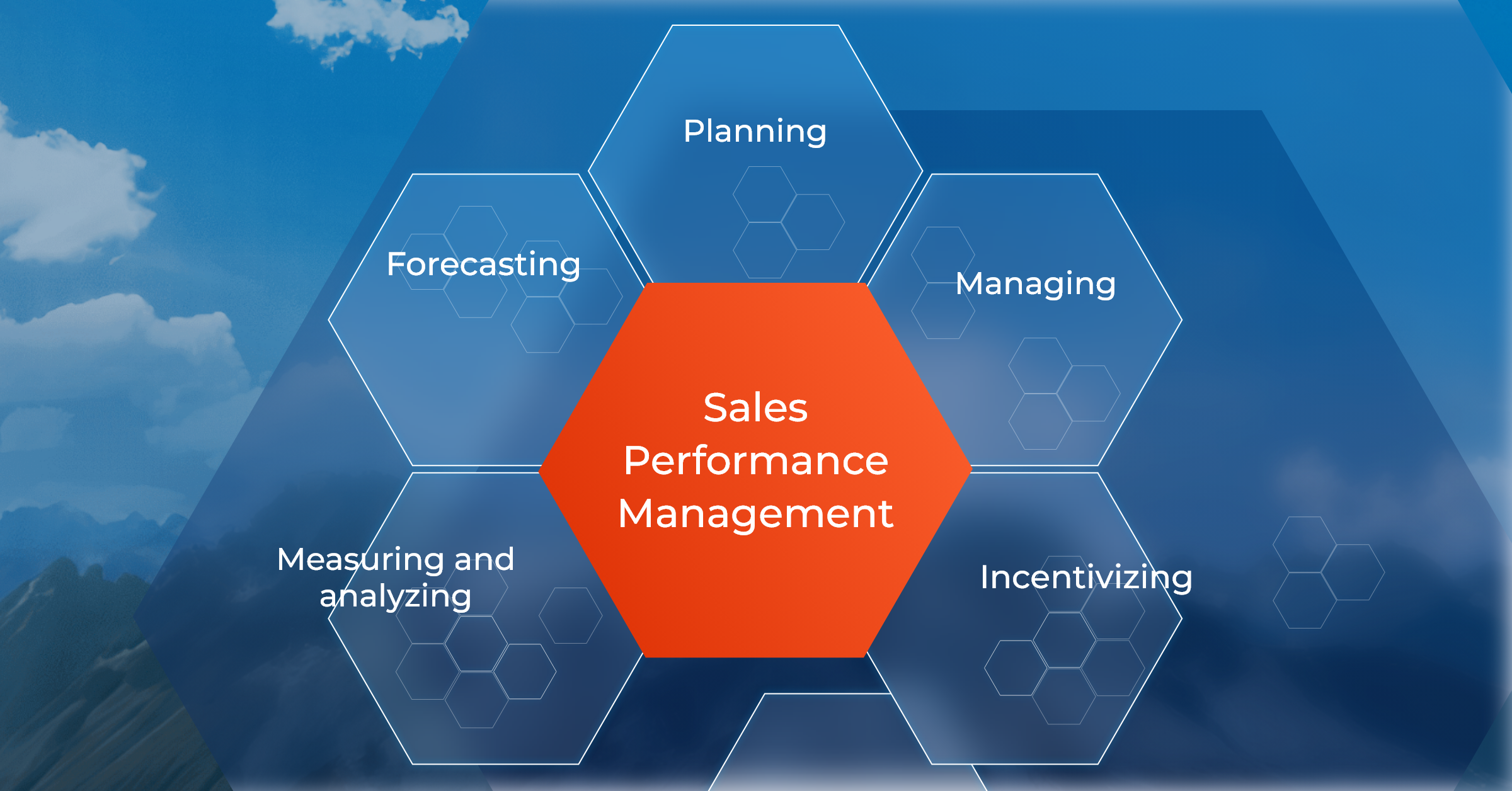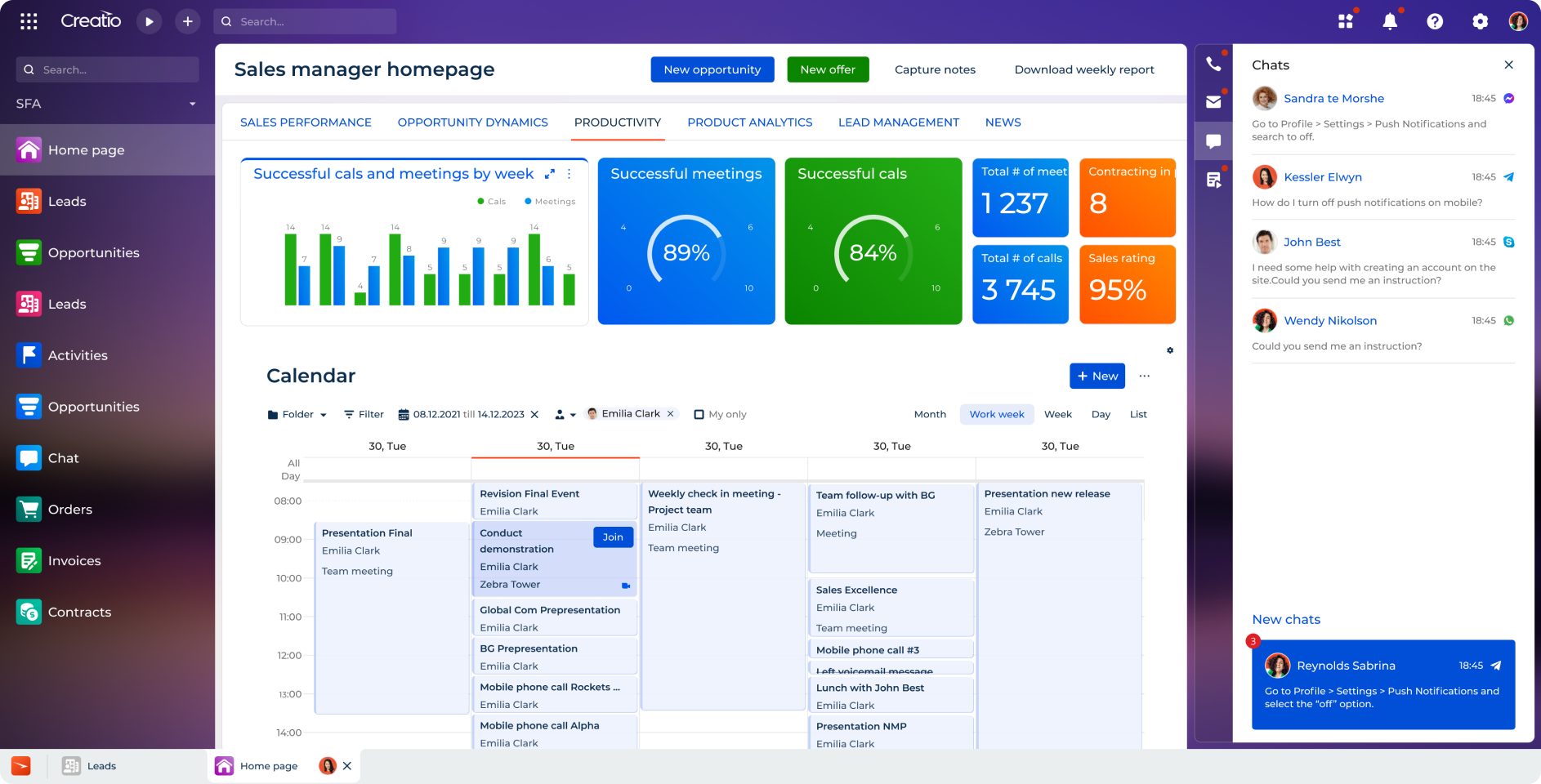What Is Sales Performance Management - Complete Guide to SPM
These days, businesses are struggling with a tough reality: on average, only about 20% of sales leads end up converting into actual purchases. That’s why finding a way to improve sales performance is crucial to achieving success in today’s competitive marketplace.
In this article, we'll dive deep into sales performance management, exploring key aspects that will help your sales team not only to meet but exceed their targets.
What is Sales Performance Management?
Sales Performance Management (SPM) is a process of planning, managing, and analyzing sales activities to improve their efficiency and boost sales performance. By optimizing key tasks such as sales planning, quota management, incentive compensation, and performance analysis, SPM empowers businesses to achieve their goals and drive revenue growth.
SPM is primarily designed for the sales teams to help streamline their workflows, improve productivity, and ultimately increase their success in closing deals. For sales managers, sales performance management provides the means to set clear objectives, monitor KPIs, and offer support to their teams. Business leaders can benefit from actionable insights into sales performance provided by SPM to make data-driven decisions, aimed at achieving revenue targets and organizational growth.
Why Is Sales Performance Management Important?
Sales performance management helps businesses optimize their sales process and maximize their efficiency. It’s a great way for businesses to boost their productivity and optimize the entire sales cycle.
The benefits of SPM include:
- reducing processing time,
- accelerating closing time,
- preventing operational errors,
- enhancing sales ROI,
- increasing sales and revenue.
Sales Performance Management Components
Sales performance management includes several essential components:

1. Planning
Sales planning involves dividing the market and assigning sales representatives based on their skills and expertise to make the most out of every opportunity. This process includes categorizing customers or accounts, based on specific criteria, such as industry, geographic location, etc., assigning territory to each salesperson, setting quotes, and planning the capacity, all aimed at maximizing sales effectiveness.
Sales planning helps businesses optimize the potential of each account, territory, and region. By utilizing data-driven insights, businesses can allocate resources, set realistic goals, and plan their capacity.
2. Managing
Even the most meticulously crafted plans require ongoing supervision and adjustment. By generating real-time data on salespeople's output and quota achievement, sales performance management helps businesses effectively manage their sales teams.
Regular check-ins, and understanding each sales rep's strengths and areas for improvement empower managers to help them reach their maximum potential, and increase deal-closing rates.
Effective management with SPM begins with clear communication and goal-setting. Sales managers must ensure that each team member understands their goals, roles, and responsibilities. By setting achievable yet challenging targets, managers can motivate their sales teams to constantly improve their performance and develop their skills.
3. Incentivizing
Businesses can further boost their sales representatives' productivity and job satisfaction with incentive programs. By using data-driven insights, SPM allows businesses to create a framework to tailor incentives to each salesperson's unique performance. By tracking key metrics like quota progress, deal closing rates, and revenue generated, sales executives gain full visibility of the team's and individual progress, which helps them effectively allocate incentives and rewards.
According to the research conducted by the Incentive Research Foundation, when effectively chosen, implemented, and overseen, incentive programs can increase individual performance by an average of 22%. The impact is even more pronounced with team incentives, which have been shown to boost performance by as much as 44%.
4. Measuring and analyzing
With sales performance management, businesses can keep a close eye on their sales performance metrics, and continuously analyze and evaluate their results. This means keeping track of key performance indicators (KPIs), such as closing rates, revenue generated, average order value, etc., and using those insights to make informed decisions about sales planning, managing, incentivizing, and improving sales performance.
5. Forecasting
The last element of sales performance management is forecasting, which involves predicting future sales trends and outcomes based on historical data, market analysis, and other relevant factors.
Sales forecasting helps businesses anticipate opportunities and challenges to make informed decisions that increase sales. By accurately forecasting sales, businesses can better allocate resources, set realistic targets, and adapt strategies to changing market conditions.
What Should You Look for in Sales Performance Management Software?
Implementing sales performance management can be challenging, especially for larger enterprises employing thousands of people. However, the benefits of adopting SPM are worth the effort, as it helps boost the sales process efficiency and increase business revenue. That’s why there's a wealth of tools and software out there that will make the process smoother.
The SPM market is booming, and it’s forecasted to expand by over $7 billion in the next 10 years. So, while introducing sales performance management at your company might seem like a daunting task, there's a wealth of tools and software out there that will make it smoother.
Let’s explore some of the most important features of sales performance management software:
Sales pipeline management
Sales pipeline management helps businesses visualize and manage the sales process from start to finish. It tracks the movement of leads and opportunities through different pipeline stages, providing visibility into which prospects are advancing toward conversion and which ones may require additional attention or nurturing to move to the next stage of the sales cycle.
By analyzing the flow of leads through the pipeline, sales teams can identify bottlenecks or areas of inefficiency that may be hindering sales performance, and use those insights to improve the process and achieve better results.
Sales performance analysis
First and foremost, make sure it offers robust sales performance analysis. Dynamic dashboards and customizable sales reports are crucial features to look for, as they enable you to delve deep into your sales Key Performance Indicators (KPIs) in real-time.
Dynamic dashboards provide instant access to critical sales metrics, allowing you to visualize trends and track progress. Customizable sales reports help you tailor analyses to your specific needs, whether it's evaluating individual performance, assessing sales pipeline efficiency, or identifying emerging opportunities.
By leveraging insights provided by sales performance analysis, you can optimize your sales process, allocate resources effectively, and ultimately drive sales growth.
Sales productivity
The sales productivity feature can help you coordinate sales task management and team collaboration by organizing tasks, activities, and projects, so your team members can work together on shared activities. Sales performance management software also facilitates communication by integrating communication tools such as email, messaging, and collaboration platforms, enabling sales teams to communicate effortlessly and stay connected, regardless of their location.
Moreover, SPM platforms enhance individual performance by offering personalized dashboards that allow salespeople to track their own performance metrics, monitor progress toward goals, and identify areas requiring refinement. SPM software can also help them streamline their workflow by sending automated notifications and alerts, ensuring they stay on top of upcoming tasks, deadlines, and crucial events, boosting their productivity.
Forecasting
Forecasting is a pivotal feature of sales performance management software, providing businesses with the ability to predict future sales outcomes based on historical data, market trends, and other relevant factors.
Forecasting tools help predict future sales trends that make it possible for businesses to anticipate changes in demand, identify emerging opportunities, and adjust their sales strategies accordingly. Based on those insights, organizations can set realistic sales targets, allocate resources accordingly, and identify potential risks and challenges.
Sales Performance Management with CRM
Sales performance management is an integral part of CRM platforms and offers a comprehensive solution for optimizing sales performance, including tools for setting sales targets, tracking progress, analyzing metrics, and refining sales processes. With CRM, businesses can effectively control and monitor sales performance, make data-driven decisions, and improve their results.
Sales Creatio CRM stands out as an ideal solution thanks to its comprehensive set of tools aimed at enhancing sales performance, such as sales pipeline management, sales productivity, and performance analytics, which empower teams to track progress and make informed decisions. With Sales Creatio, sales managers can benefit from analytics and forecasting features to tap into valuable insights, identify trends, allocate resources wisely, and refine strategies to boost the sales performance of their teams. Furthermore, Creatio’s customizable architecture and user-friendly interface make it easy for businesses to tailor the platform to their specific needs.

By leveraging CRM for sales performance management, businesses can unlock the full potential of their sales teams and achieve success in today's competitive market landscape. With Sales Creatio, businesses have all the tools they need to streamline sales processes, optimize performance, boost productivity, and drive revenue growth.






